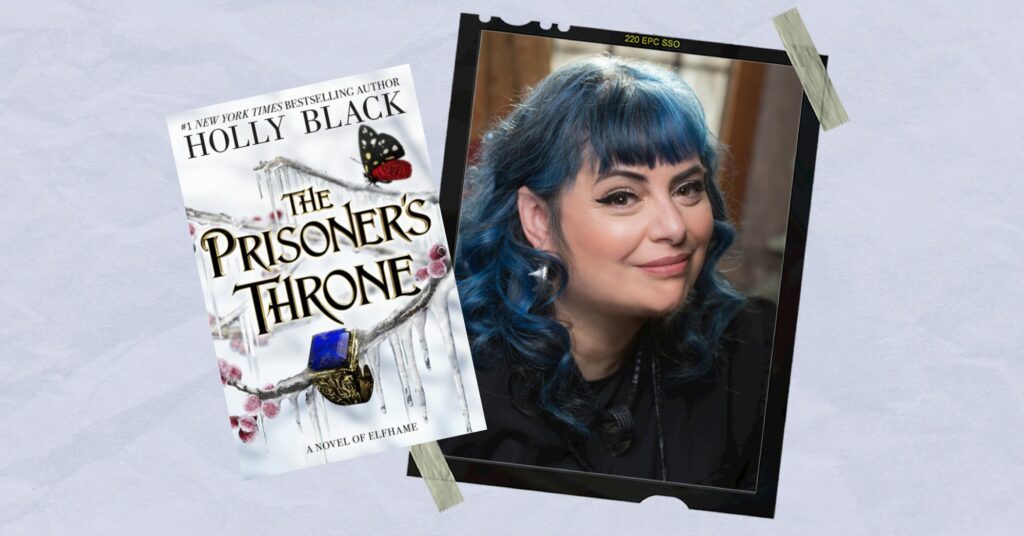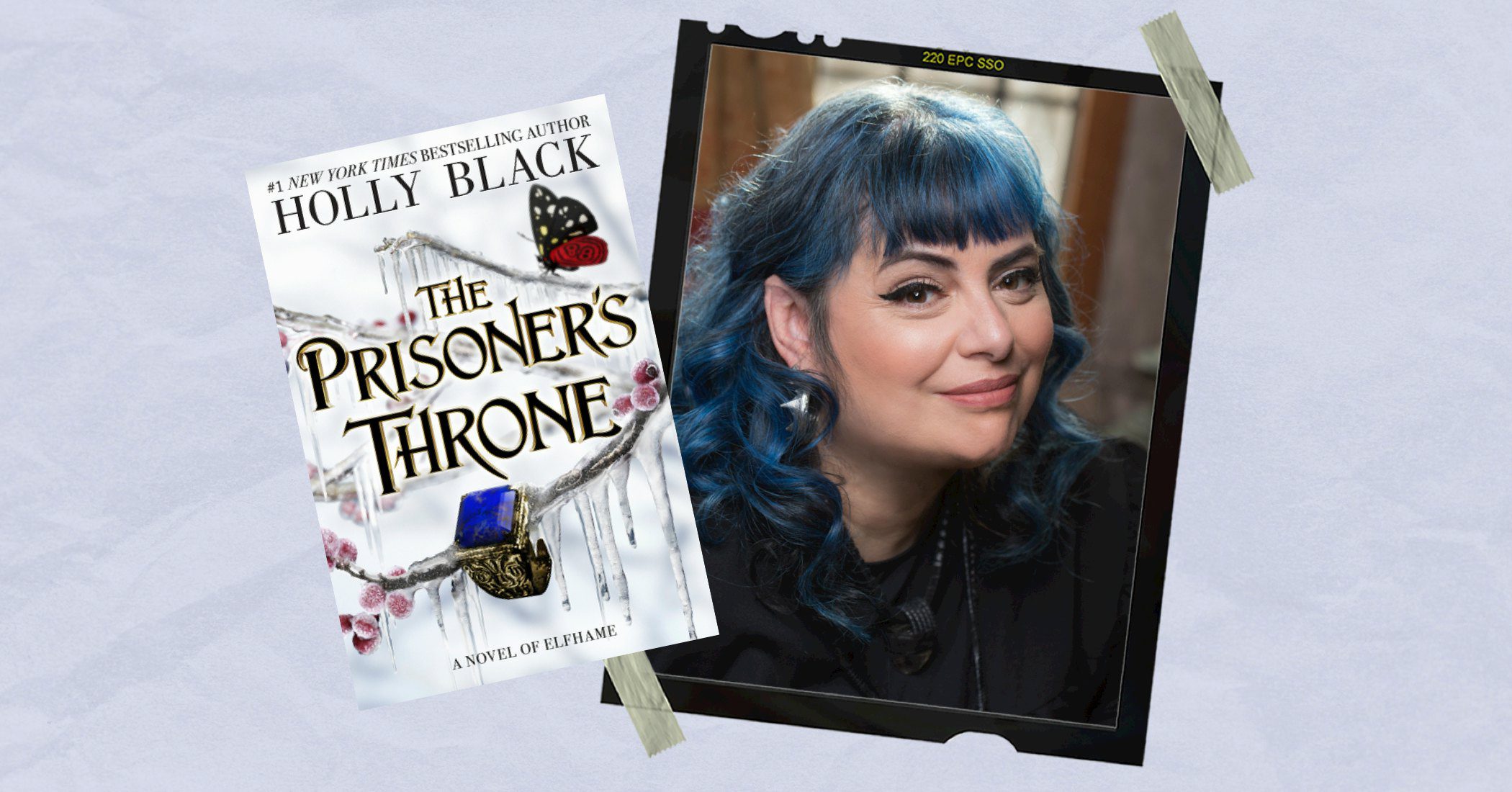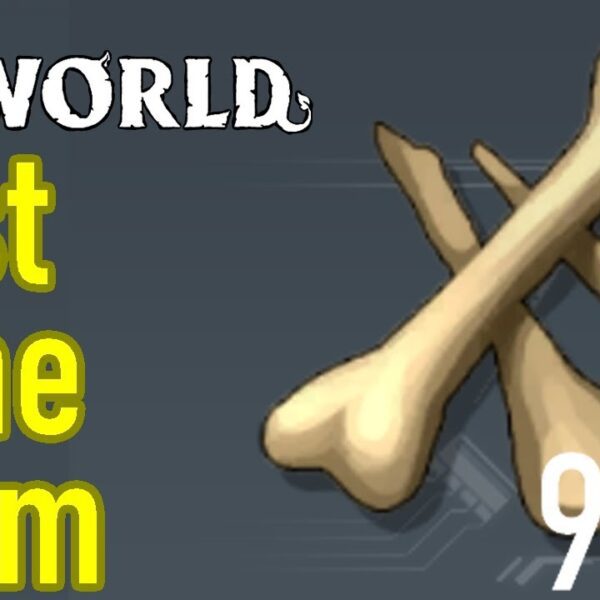The Prisoner’s Throne by Holly Black is the thrilling conclusion to her Stolen Heir duology. It throws us back into the fantastical world of Elfhame, a land teeming with magic and fraught with political intrigue.
THE PRISONER’S THRONE Synopsis

Here’s a synopsis of The Prisoner’s Throne by Holly Black, the sequel to The Stolen Heir:
An imprisoned prince. A vengeful queen. And a battle that will determine the future of Elfhame.
Prince Oak finds himself in a desperate situation. After his betrayal in the previous book, he is now a prisoner in the icy north, bound to the will of the monstrous new queen, Mieran. His only hope for survival lies in his charm and cunning.
Meanwhile, High King Cardan and High Queen Jude of Elfhame are determined to rescue their stolen heir, Oak. They are willing to use any means necessary to get him back, even if it means starting a war.
Oak is torn. Does he attempt to regain the trust of the girl he’s always loved, Jude, or remain loyal to Elfhame and potentially hand over the means to destroy her reign?
With a new war looming on the horizon and treachery lurking in every corner, Oak’s guile and wit won’t be enough to keep everyone he loves alive. He must make a crucial choice: who will he doom?
This synopsis highlights the key points of the story:
- Oak’s imprisonment and struggle for survival.
- The determination of Cardan and Jude to rescue him.
- Oak’s internal conflict between loyalty and love.
- The looming war and the stakes involved in Oak’s choice.
- The overall sense of danger and intrigue.
THE PRISONER’S THRONE Summary

In “The Prisoner’s Throne”, the thrilling sequel to Holly Black’s The Stolen Heir, Prince Oak finds himself imprisoned in the icy north after his betrayal in Elfhame.
Key Plot Points:
- Imprisoned Prince: Oak, once a prince of Elfhame, is now a captive of the monstrous new queen who rules the cold northern lands. He must rely on his charm and cunning to survive this harsh environment and navigate the treacherous political landscape of his captors.
- Rescue Mission: High King Cardan and High Queen Jude of Elfhame are determined to rescue their stolen heir, Oak. They’ll utilize any means necessary to bring him back, sparking potential conflict and intricate political maneuvering.
- Looming War: A new war threatens to engulf Elfhame. With Oak caught in the middle, his choices and loyalties will have a significant impact on the outcome of this conflict.
- Internal Struggles: Oak grapples with internal turmoil. Torn between his loyalty to Elfhame and his growing feelings for Wren, the vengeful queen who holds him captive, he must navigate a complex emotional landscape.
- Shifting Perspectives: Unlike The Stolen Heir, which focused on Jude’s perspective, “The Prisoner’s Throne” might offer a dual narrative, allowing readers to see the story unfold from both Oak’s and potentially other characters’ viewpoints.
- Focus on Oak: This sequel delves deeper into Oak’s character, exploring his motivations, vulnerabilities, and his struggle for survival in this unforgiving situation.
Overall, “The Prisoner’s Throne” promises to be a suspenseful and action-packed conclusion to the Stolen Heir duology. It will likely explore themes of betrayal, loyalty, the complexities of war, and the power of love and deception.
THE PRISONER’S THRONE Review
by Holly Black

The Prisoner’s Throne, the highly anticipated sequel to The Stolen Heir by Holly Black, delivers another captivating chapter in the adventures of Prince Oak and the enigmatic Suren, now known as Wren. Black plunges readers back into the treacherous world of Elfhame, where loyalty, deception, and the thirst for power intertwine.
Oak’s Plight: The story opens with Oak, stripped of his princely status and held captive by the monstrous new queen. Desperate to survive, he must navigate a court filled with danger and rely on his wit and charm. We see a shift in Oak’s character as he grapples with his situation, showcasing a newfound depth and complexity.
Wren’s Enigma: Wren, shrouded in mystery, remains a captivating figure. While her motivations and loyalties remain unclear, we see glimpses of her vulnerability and a potential yearning for connection with Oak. This ambiguity keeps readers guessing and adds a layer of intrigue to the narrative.
Strengths of the Novel:
- Compelling Characters: Black excels at crafting characters who are flawed, complex, and utterly captivating. Both Oak and Wren undergo significant growth throughout the story, making their journeys all the more engaging.
- Intricate Plot: The plot unfolds with twists and turns that keep readers on the edge of their seats. The political machinations and power struggles within Elfhame are masterfully woven into the narrative.
- Vivid Worldbuilding: Black’s signature lyrical prose brings the world of Elfhame to life. From the icy northern prison to the bustling court, readers are immersed in the beauty and danger of this fantastical realm.
Potential Considerations:
- Shifting Focus: While Oak and Wren remain central characters, the narrative spends more time exploring the perspectives of other characters compared to The Stolen Heir. This might be a point of adjustment for some readers who were particularly invested in Oak and Wren’s dynamic in the first book.
- Cliffhanger Ending: The novel concludes with a significant cliffhanger, leaving readers eager for the next installment. While this approach can be effective in building anticipation, it might leave some wanting more immediate resolution.
Overall:
The Prisoner’s Throne is a worthy successor to The Stolen Heir. Black delivers a thrilling and thought-provoking story filled with complex characters, political intrigue, and the signature magic of Elfhame. This book is a must-read for fans of fantasy, especially those who enjoyed the first installment in the series.
Recommendation:
If you enjoy rich worldbuilding, complex characters, and a plot filled with twists and turns, then The Prisoner’s Throne is definitely worth picking up. However, be prepared for a shift in focus compared to the first book and a cliffhanger ending that will leave you yearning for more.
THE PRISONER’S THRONE Audio book



Compare and choose the best platform for THE PRISONER’S THRONE Audio Book🎧.
THE PRISONER’S THRONE Ending
In The Prisoner’s Throne, the thrilling conclusion to Holly Black’s Stolen Heir duology, the ending leaves some things unresolved while offering a glimpse into a future filled with uncertainty and potential conflict. Here’s a breakdown of the key points:
Oak’s Choice and the Fate of the Unseelie Court:
- Oak, caught between loyalty to Elfhame and his feelings for Wren, chooses to side with Elfhame. He reveals Wren’s weakness (her connection to the Mandrake) to Cardan, essentially betraying her.
- The Unseelie Court, weakened by the loss of the Mandrake’s power, surrenders. Their fate remains unclear, though it’s implied they might be integrated into the High Court or face exile.
Wren’s Fate:
- Wren, heartbroken and defeated, is captured by Cardan’s forces. The narrative leaves her future uncertain. She might be imprisoned, forced to cooperate with Cardan, or even killed.
Cardan and Jude:
- Cardan, having regained his full power and control of Elfhame, remains an enigma. His relationship with Jude is strained due to her disapproval of his methods.
- The ending offers a hint of reconciliation as Jude acknowledges Cardan’s sacrifice in protecting Elfhame. However, a sense of unease lingers, with the possibility of future conflict between them.
Openings for the Future:
- The prophecy of a human queen ruling Elfhame remains unfulfilled. While Wren is defeated, the prophecy’s true meaning and potential fulfillment are left open-ended.
- The human world and Elfhame remain on the brink of war. The fragile peace established by Jude could easily shatter.
Overall, the ending of The Prisoner’s Throne is bittersweet. Justice prevails for Elfhame, but at a steep cost. The characters grapple with the consequences of their choices, and the future of Elfhame remains uncertain. The unresolved plot threads leave room for speculation and the possibility of a continuation in the series.
THE PRISONER’S THRONE Ending explained
Holly Black’s The Prisoner’s Throne, the sequel to The Stolen Heir, delivers a complex and thought-provoking conclusion that leaves much open to interpretation. Here’s a breakdown of the ending, delving into key events and exploring potential implications:
A Throne Unclaimed:
- Jude Duarte, the cunning and ruthless protagonist, remains uncrowned. Despite her ambition and manipulation throughout the story, she doesn’t ascend the Elfhame throne. This defies expectations established in the first book and leaves her future uncertain.
Cardan’s Choice:
- Cardan Greenbriar, the mischievous and enigmatic High King of Elfhame, makes a surprising choice. He chooses to remain mortal, rejecting the power of the Unseelie Court and potentially severing his connection to the throne. This act could be interpreted as a sacrifice for Jude, or a rebellion against the expectations placed upon him.
A Dance with Death:
- Madoc, Jude’s ruthless biological father, meets a gruesome end. He’s captured and executed by the Court of Teeth, a powerful faerie faction. This eliminates a significant threat to Jude and Cardan, but also removes a source of potential conflict and complexity.
Unfinished Business:
- The novel concludes with several loose ends. The fate of the human world remains unclear, as tensions simmer between humans and faeries. Additionally, the prophecy of the Ghost Queen and the potential return of the unseelie prince cast a shadow of uncertainty over Elfhame’s future.
Interpretations and Speculation:
- Jude’s Unfulfilled Ambition: Jude’s lack of a crown could be seen as a consequence of her ruthless tactics or a deliberate choice to prioritize Cardan’s mortality. It might also suggest that true power lies beyond the throne.
- Cardan’s Sacrifice: By choosing mortality, Cardan might be expressing his love for Jude, who cannot be queen of a fully faerie king. Alternatively, it could be a rejection of the manipulative and cruel nature of faerie politics.
- A New Beginning?: The ambiguous ending might suggest a fragile peace between Elfhame and the human world. Jude and Cardan, potentially free from the constraints of power, could embark on a new chapter in their complex relationship.
Themes Explored:
The ending highlights several themes central to the Folk of the Air series:
- The Price of Power: The pursuit of power often comes at a personal cost, as seen in Jude’s sacrifices and Cardan’s internal struggles.
- Love and Loyalty: Despite their flaws, Jude and Cardan demonstrate a fierce loyalty and love for each other, ultimately influencing their choices.
- The Cycle of Violence: The unresolved tensions between humans and faeries suggest that the cycle of violence might continue, highlighting the difficulty of achieving lasting peace.
Conclusion:
The Prisoner’s Throne offers an ending that is both open-ended and thought-provoking. The lack of definitive answers allows readers to interpret the characters’ fates and the future of Elfhame based on their own understanding of the story and its themes.
THE PRISONER’S THRONE Age rating
The Prisoner’s Throne (Volume 2 of The Stolen Heir duology) by Holly Black is generally considered appropriate for readers aged 14 and up.
Here’s a breakdown of the age rating factors:
- Content: The book features themes of violence, war, and political intrigue. There might be some battle scenes and descriptions of injuries, but the violence is not overly graphic.
- Language: While there might be some instances of mild swearing or insults, the language is not a major concern.
- Complexity: The story deals with complex themes and political maneuvering, which might be more easily grasped by readers with a more developed understanding of these concepts.
Here are some resources where you can find more information about the book’s age appropriateness:
- Amazon: https://www.amazon.com/Prisoners-Throne-Stolen-Heir/dp/0316592714 (This page might not explicitly state the age rating, but many customer reviews mention it being appropriate for young teens)
- Goodreads: https://www.goodreads.com/work/editions/96569157-the-prisoner-s-throne (This page often includes ratings and reviews that mention age appropriateness)
- Common Sense Media: https://www.commonsensemedia.org/ (This website provides reviews and age ratings for various media, including books, based on factors like violence, language, and sexual content)
Ultimately, the decision of whether or not a book is appropriate for a particular reader depends on individual preferences and maturity levels. If you’re unsure, it might be helpful to read some reviews or skim through a few pages to get a sense of the content and writing style.
THE PRISONER’S THRONE Genre
The Prisoner’s Throne by Holly Black belongs to the Young Adult Fantasy genre.
Here’s a breakdown of the genre classification:
- Young Adult (YA): This category targets readers typically between the ages of 12 and 18. The themes and complexity of the story are geared towards this age group.
- Fantasy: The story features elements of magic, mythical creatures, and worlds beyond our own.
While some might consider it a sequel, The Prisoner’s Throne is actually the second book in a duology titled The Stolen Heir. The first book is titled Stolen Heir.
THE PRISONER’S THRONE Quotes
Here are some of the top 20 quotes from Holly Black’s The Prisoner’s Throne, capturing the themes of power, betrayal, and resilience:
- “Oak knew the truth: kindness was a weakness a prince couldn’t afford.” (This quote establishes the harsh realities of power and leadership in Elfhame.)
- “There is a difference between vengeance and justice,” she said. “Vengeance looks back. Justice looks forward.” (This quote explores the complexities of revenge and the importance of seeking a better future.)
- “Hope is a dangerous ember you carry in your chest. It can light your way, but it can also burn you.” (This quote highlights the double-edged sword of hope and its potential risks.)
- “A monster is only a monster because someone named it that.” (This quote questions the nature of good and evil and the power of perspective.)
- “Sometimes the hardest thing to do is nothing at all.” (This quote explores the burden of responsibility and the importance of making difficult choices.)
- “Power isn’t about making people like you. It’s about making them fear you.” (This cynical quote portrays a harsh power dynamic.)
- “Fear is a useful tool, but it dulls the senses over time.” (This quote acknowledges the dangers of relying solely on fear for control.)
- “There is a difference between freedom and recklessness,” she said. “True freedom comes from knowing your limitations.” (This quote highlights the importance of responsibility alongside freedom.)
- “A crown is a heavy thing, even when it’s made of dreams.” (This metaphorical quote emphasizes the burdens of leadership.)
- “There is magic in loyalty,” she said. “It is a kind of power, too.” (This quote emphasizes the value of loyalty and its strength.)
- “Sometimes the only way to win is to make your enemy afraid of victory.” (This strategic quote highlights the importance of psychological warfare.)
- “The truth is a dangerous weapon. It can wound as easily as a lie.” (This quote explores the potential consequences of truth-telling.)
- “Love is a battlefield, little prince,” she said. “But sometimes the most important battles are the ones you fight within yourself.” (This metaphorical quote depicts the internal struggles of love.)
- “There is no shame in fear,” she said. “Only in letting it control you.” (This quote encourages courage in the face of fear.)
- “Sometimes the best stories are the ones that never get written.” (This enigmatic quote suggests the hidden significance of untold stories.)
- “The past is a cage,” he said. “But the future is an open sky.” (This hopeful quote emphasizes the importance of focusing on the future.)
- “There is a power in names,” she said. “They can bind you or set you free.” (This quote highlights the symbolic weight of names and their influence.)
- “Sometimes silence is the loudest language.” (This metaphorical quote emphasizes the power of unspoken words.)
- “A promise is a fragile thing,” he said. “But it is all we have.” (This quote highlights the importance of keeping promises despite their fragility.)
- “The world may break you,” she said. “But the way you mend is what makes you who you are.” (This quote emphasizes the resilience of the human spirit.)
These quotes provide a glimpse into the rich themes and captivating characters found in Holly Black’s The Prisoner’s Throne. They offer food for thought and leave a lasting impression on the reader.
Comment your favorite quotes from the book if you already read it. And for more in depth info on newly released books, bookmark our website.






